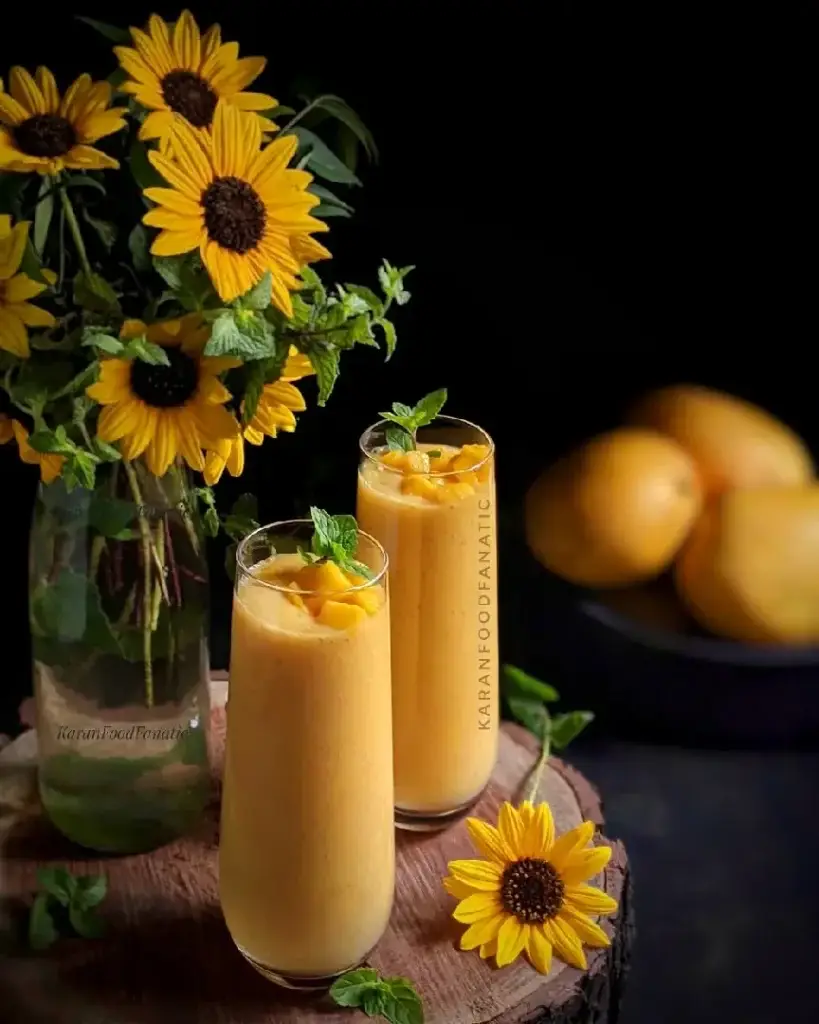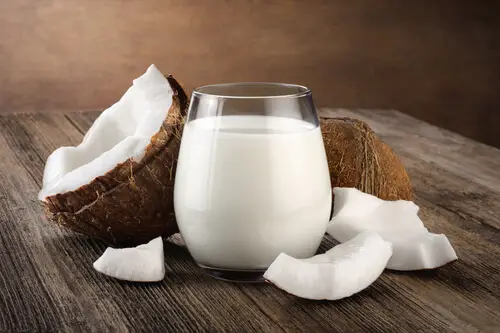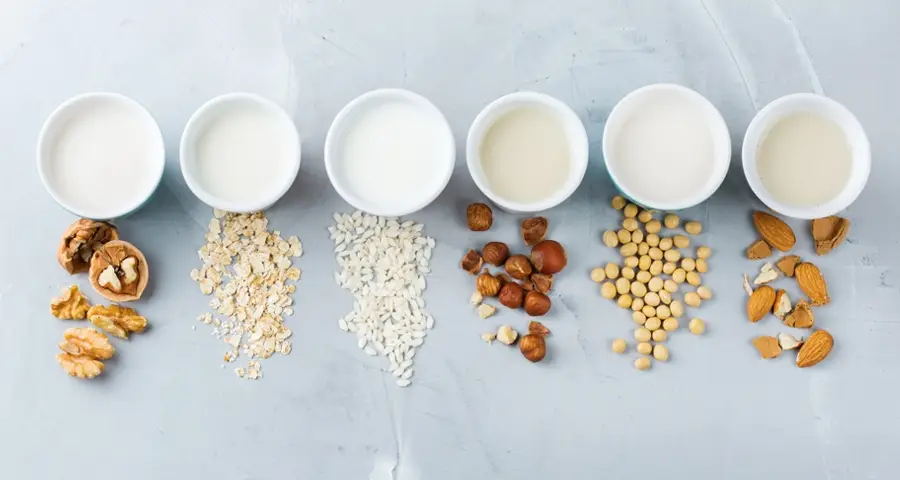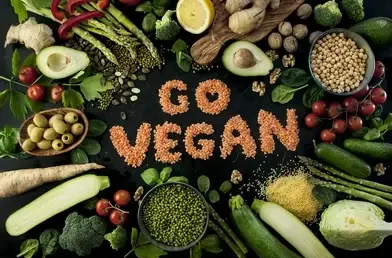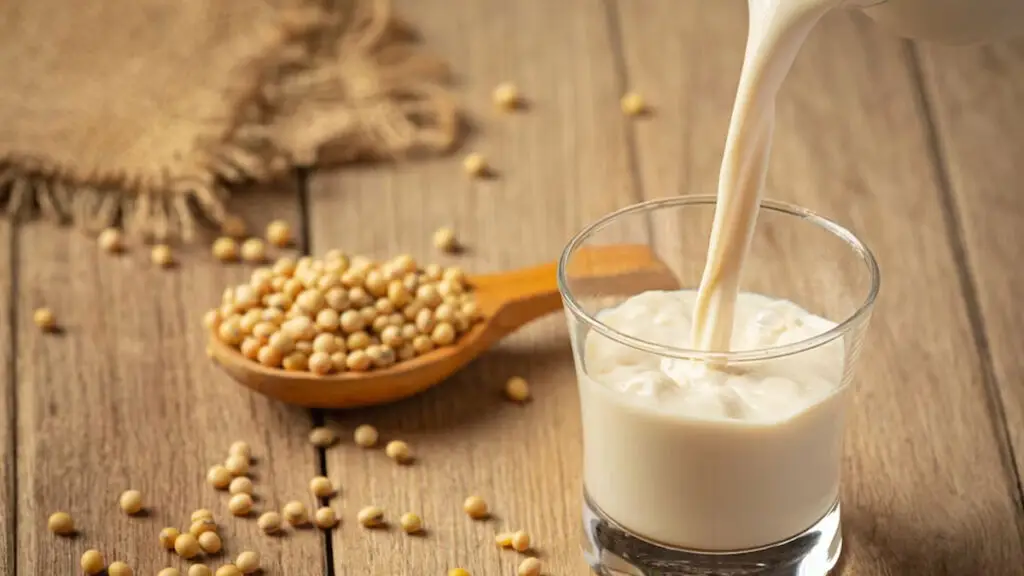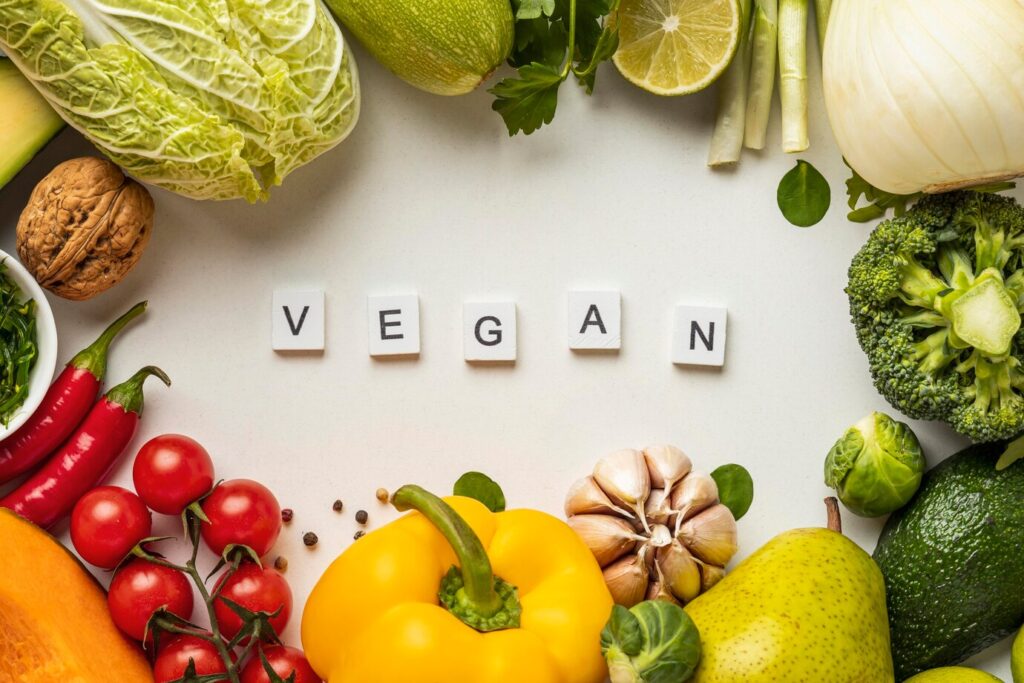
“The Key to health is in your plate,not in your medicine cabinet”-John Robbins
Veganism is a lifestyle choice that seeks to exclude, as far as possible, all forms of exploitation of animals for food, clothing, and other purposes.
Preventing the exploitation of animals is not the only reason for becoming vegan, but for many it remains the key factor in their decision to go vegan and stay vegan. Having emotional attachments with animals may form part of that reason, while many believe that all sentient creatures have a right to life and freedom. Specifics aside, avoiding animal products is one of the most obvious ways you can take a stand against animal cruelty and animal exploitation everywhere.
Vegan Diet:A vegan diet is based on plant-based foods, including:
1. Fruits
2. Vegetables
3. Legumes (lentils, chickpeas)
4. Grains (rice, quinoa)
5. Nuts and seeds
6. Tofu and tempeh
7. Plant-based milk and dairy alternatives
Lorem ipsum dolor sit amet, consectetur adipiscing elit. Ut elit tellus, luctus nec ullamcorper mattis, pulvinar dapibus leo.
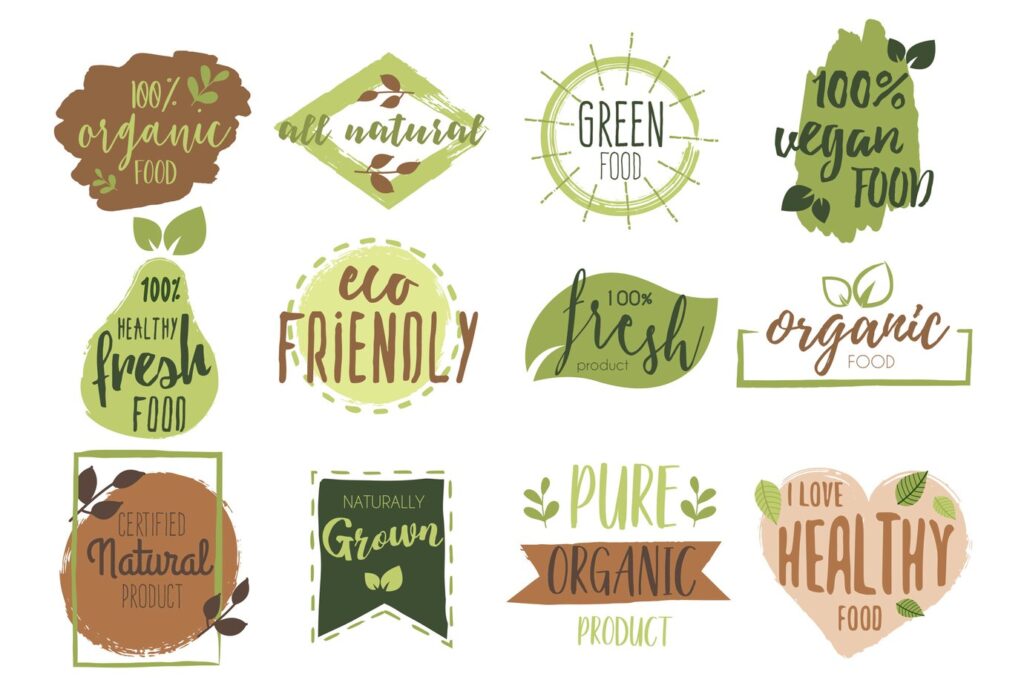
Benefits of Veganism:
1. Animal welfare
2. Environmental sustainability
3. Improved health
4. Weight management
5. Increased energy
Well-planned vegan diets follow healthy eating guidelines, and contain all the nutrients that our bodies need. Both the British Dietetic Association and the American Academy of Nutrition and Dietetics recognise that they are suitable for every age and stage of life. Some research has linked that there are certain health benefits to vegan diets with lower blood pressure and cholesterol, and lower rates of heart disease, type 2 diabetes and some types of cancer.
Going vegan is a great opportunity to learn more about nutrition and cooking, and improve your diet. Getting your nutrients from plant foods allows more room in your diet for health-promoting options like whole grains, fruit, nuts, seeds and vegetables, which are packed full of beneficial fibre, vitamins and minerals.
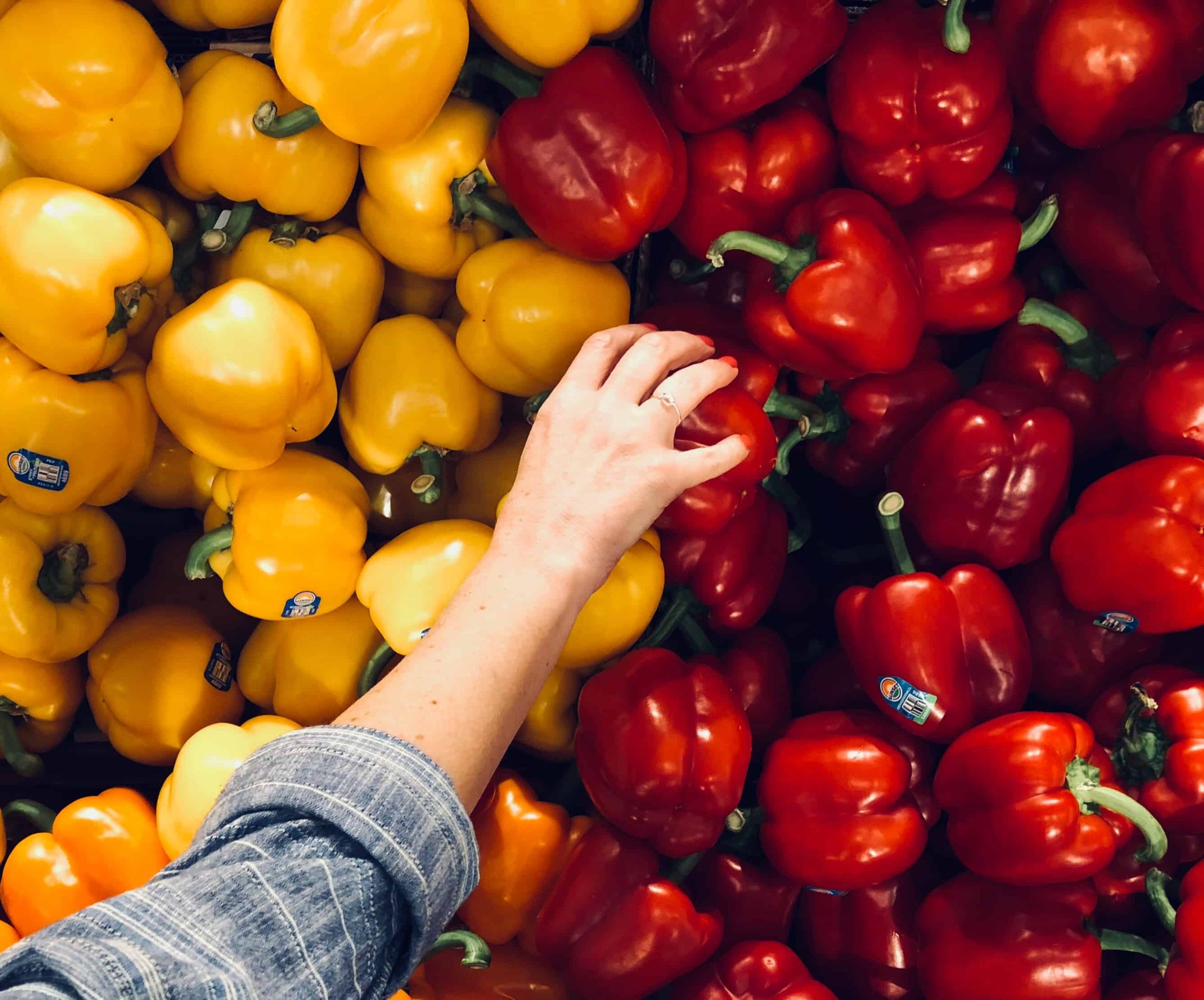
Vegan Types:
1. Dietary vegan (plant-based diet)
2. Lifestyle vegan (extends to fashion, beauty, entertainment)
3. Raw vegan (uncooked, plant-based diet)
4. Fruitarian (fruit-based diet)
Vegan-Friendly Foods:
1. Tofu
2. Tempeh
3. Seitan
4. Veggie burgers
5. Plant-based milk (almond, soy, oat)
6. Vegan cheese
7. Whole grains
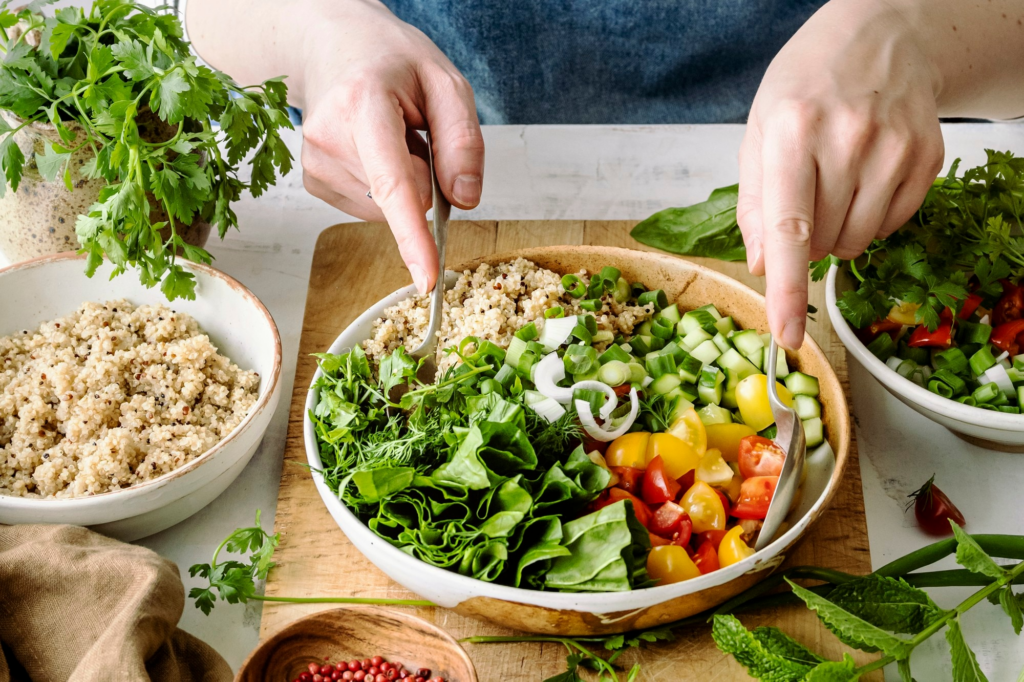
Vegan Lifestyle:
Beyond diet, veganism extends to:
1.Fashion: Avoiding leather, fur, silk, and wool.
2. Beauty: Choosing cruelty-free, vegan cosmetics.
3. Entertainment: Avoiding zoos, circuses, and animal-based performances.
4. Travel: Choosing vegan-friendly accommodations and activities.


